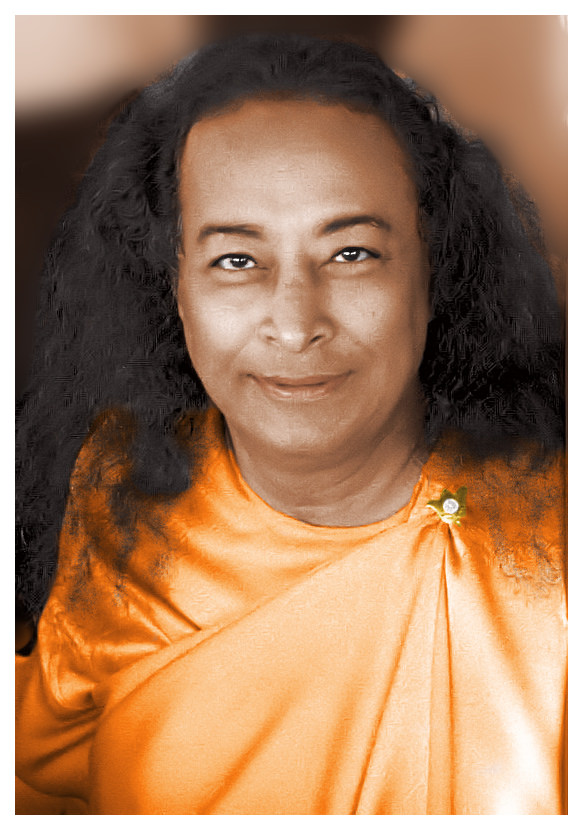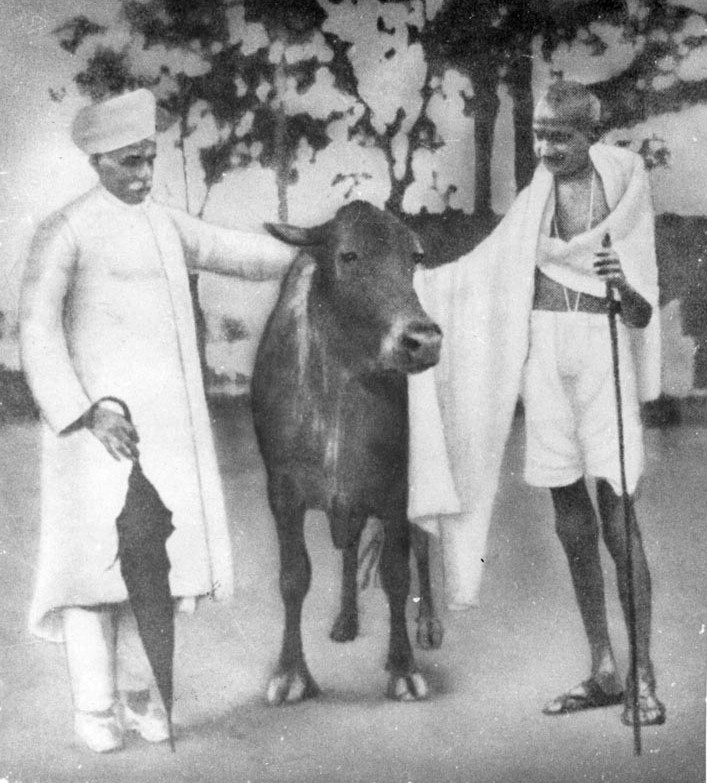Paramhansa Yogananda
Mr. Mahadev Desai led us to the writing room where, cross-legged, sat Mahatma Gandhi. Pen in one hand and a scrap of paper in the other, on his face a vast, winning, warm-hearted smile! “Welcome!” he scribbled in Hindi; it was a Monday, his weekly day of silence. Though this was our first meeting, we beamed on each other affectionately.
The tiny 100-pound saint radiated physical, mental, and spiritual health. His soft brown eyes shone with intelligence, sincerity, and discrimination; this statesman has matched wits and emerged the victor in a thousand legal, social, and political battles.
The protection of cows is a passion with Gandhi. “The cow to me means the entire sub-human world, extending man’s sympathies beyond his own species,” the Mahatma has explained. “Man through the cow is enjoined to realize his identity with all that lives. Why the ancient rishis selected the cow for apotheosis is obvious to me. The cow in India was the best comparison; she was the giver of plenty. Not only did she give milk, but she also made agriculture possible. The cow is a poem of pity; one reads pity in the gentle animal. She is the second mother to millions of mankind. Protection of the cow means protection of the whole dumb creation of God. The appeal of the lower order of creation is all the more forceful because it is speechless.”

The Gandhi vow of non-possession came early. Renouncing an extensive legal practice which had been yielding him an annual income of more than $20,000, the Mahatma dispersed all his wealth to the poor. Sri Yukteswar used to poke fun at the commonly inadequate conceptions of renunciation. “A beggar cannot renounce wealth,” Master would say. “If a man laments: ‘My business has failed; my wife has left me; I will renounce all and enter a monastery,’ to what worldly sacrifice is he referring? He did not renounce wealth and love; they renounced him!”
Saints like Gandhi have made not only tangible material sacrifices, but also the more difficult renunciation of selfish motive and private goal, merging their inmost being in the stream of humanity as a whole.
“Mahatmaji,” I said as I squatted beside him on the uncushioned mat, “please tell me your definition of ahimsa.”
“The avoidance of harm to any living creature in thought or deed.”
“Beautiful ideal! But the world will always ask: May one not kill a cobra to protect a child, or one’s self?”
“I could not kill a cobra without violating two of my vows – fearlessness, and non-killing. I would rather try inwardly to calm the snake by vibrations of love. I cannot possibly lower my standards to suit my circumstances.” With his amazing candor, Gandhi added, “I must confess that I could not carry on this conversation were I faced by a cobra!”
Excerpted from ‘Autobiography of a Yogi’. The 126th birth anniversary of Paramhansa Yogananda is being observed on January 2







